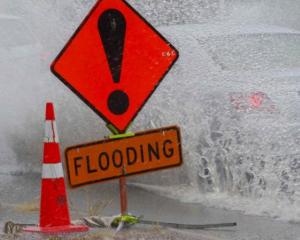
About 15 percent of New Zealanders have at least $500,000 in household investments, but half of us are worrying at least weekly about our money, new data shows.
The Financial Services Council (FSC) - which represents KiwiSaver providers and life insurers - has released research that shows overall, New Zealanders' financial situations have worsened year-on-year.
It found 20 percent of people did not feel secure in their employment, up from 15 percent a year earlier and 11 percent in 2023.
There was a particularly noticeable increase in job insecurity for those aged up to 29 - last year only 10 percent worried sometimes or always about their job security, but this year it was 21 percent.
The number of people with investments dropped, and there was a 6 percent decrease in those reporting that they were very or reasonably prepared for retirement.
About a third of respondents said their household investments were worth $50,000 or less. A third also said they could only keep up their current lifestyle for less than a month if they were not earning an income.
More than a quarter said they worried about money daily.
But at the other end of the spectrum, 15 percent said they had household investments - not including direct investment in property - of at least $500,000, and 6 percent said they had more than $1 million.
FSC chief executive Kirk Hope said the divide was a concern.
"It highlights the importance of maintaining a concerted focus on encouraging New Zealanders to build their savings. The ultimate goal is to ensure that everyone has the opportunity to enjoy a dignified and financially secure retirement."
Just over 80 percent of respondents had KiwiSaver, roughly double the number who had cash investments, including term deposits.
Just under a quarter had investments in New Zealand shares, 17 percent invested in other managed funds, 18 percent in direct property, 17 percent in international shares, 11 percent in exchange-traded funds and 7 percent in collectibles.
Hope said over time the contribution required for KiwiSaver would have to increase.
"We have the benefit of national super but there is still a significant gap when people retire. It's important people look at what they're going to need in retirement, how much they're going to need."
He said about 20 percent of employers were already offering to match more than the minimum 3 percent contribution.
Hope said KiwiSaver had made New Zealanders better off than they would be otherwise.
"If you look at some of the collateral benefits that have occurred in Australia, they have enabled investment in a wide range of things… more significant infrastructure investment has come about as a result of the broader level of savings and the need to provide assets that can provide long-term income for people."
He said New Zealanders' level of financial literacy had not improved in five years.
"Including it in the school curriculum is an important step in making a big change over time."
The "end game" needed to be ensuring New Zealanders were more confident and financially literate so they could choose investments and make discerning decisions, which would allow them to retire with dignity, he said.
"With KiwiSaver being the primary investment vehicle for most New Zealanders, it's essential that we re-examine settings around contributions and enrolment. Ensuring people can maximise the benefits of KiwiSaver is critical not just for their retirement, but for the long-term financial wellbeing of the country.
"At present, fewer than half of Kiwis feel financially prepared for retirement - a phase of life that should be defined by security and peace of mind."













